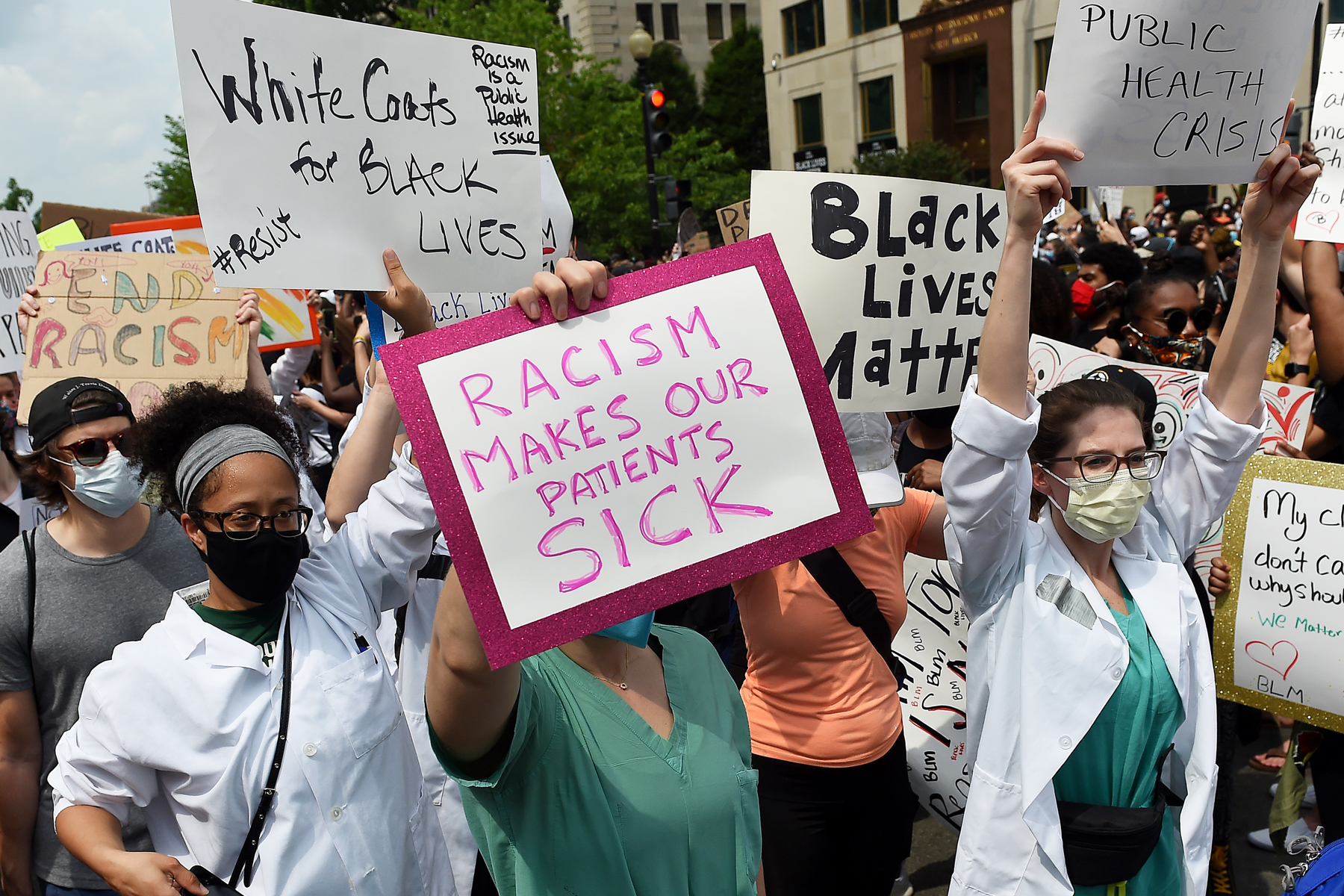States
Handling Systemic Racism In Health: Our October Issue

Handling Systemic Racism In Health: Impact Of Medicaid Expansion On Communities
Medicaid expansion has given many individuals healthcare. Health Affairs has found that this expansion has helped redline neighborhoods. The analysis shows a considerable drop in uninsured people in Medicaid expansion regions under the Affordable Care Act. These results emphasize the need for structural racism legislation and healthcare equity for everyone.
State Laws And Health Results
State laws significantly impact inhabitants’ health. A new Health Affairs research reveals that jurisdictions with structural racism legislation had higher premature death rates. Many of these laws come from Jim Crow, creating structural disparities that affect communities today. The report emphasizes the need for politicians to prioritize legal and policy reform to remove past injustices and achieve health equality for everyone.
Challenges For Community Health Workers
Community health workers (CHWs) are essential to community health, yet they encounter many problems. Health Affairs released research in October on CHWs’ personal and vocational obstacles, including racism and socioeconomic issues. These results underline the need for supporting policies and procedures that meet CHWs’ unique experiences. Policymakers may assist these workers in reducing health inequalities and promoting community equality by supporting them.
Analysis Of Structural Racism And Health Disparities
Structural racism perpetuates health inequities in underprivileged groups. In healthcare, structural racism refers to institutional and policy obstacles and discriminatory practices that affect specific racial and ethnic groups. Historical and present social, economic, and political inequities cause race-based disparities.
Recent Health Affairs research shows that systemic racism affects health insurance coverage, access to excellent healthcare, and health outcomes across populations. These results demonstrate the need for comprehensive measures that address the core causes of these inequities, including investing in disadvantaged community health and well-being efforts. Policymakers, healthcare professionals, and communities must work together to undertake healthcare equality and justice measures.
Read Also: California Governor Rejects Bill Banning Caste Discrimination.
Collective Action Empowers Marginalized Communities
Systemic hurdles to safe and healthy housing harm marginalized populations, including Black, Indigenous, and Latinx people. Given these limitations, collective action has become a valuable instrument for these communities to campaign for their rights and policy reforms that emphasize their well-being. In many adequate housing equity and health initiatives, mobilizing has been vital.
Health Affairs studies underline the importance of collective action in encouraging tenants and community members to fight discriminatory housing policies and advocate for better living conditions. These communities may fight structural racism that perpetuates housing inequality by elevating their voices and pressing for legislative improvements. Effective community-led organizing requires governments and stakeholders to invest in resources and activities that promote sustained transformation and fair housing.
Addressing Community Health Workers’ Occupational Challenges
CHWs are vital to underprivileged areas’ health. However, they frequently face obstacles that hinder their care and assistance. A recent Health Affairs study emphasizes the need to address CHWs’ employment issues, including job instability, safety concerns, and workplace discrimination and racism.
CHWs’ well-being and professional growth are essential to providing high-quality healthcare to vulnerable populations. Policymakers may encourage community trust and successful healthcare delivery by supporting supportive policies and practices emphasizing CHW safety and well-being. Additionally, providing CHWs with training and resources targeted to their requirements may improve their ability to manage complicated health problems and improve community well-being.
Increasing Mental Health Service Equity
Quality mental health treatments are still a significant issue, particularly for underprivileged people who encounter many challenges. A new study shows that systemic racism disproportionately affects mental health outcomes, underlining the need for targeted interventions to improve mental health access.
Health Affairs studies emphasize the need to tackle socioeconomic determinants of mental health, including housing instability, financial insecurity, prejudice, and trauma. Policymakers can help disadvantaged people manage their mental health by adopting culturally appropriate and community-centered mental health services. Additionally, training and professional development of diverse mental health practitioners can improve the delivery of culturally sensitive and inclusive mental health services, improving health outcomes and well-being in these communities.
Improving Health Education In Underserved Communities
Health education helps people and communities make educated health choices. However, access to comprehensive health education must be more equal, especially in marginalized regions with institutional impediments to excellent teaching and resources. Recent Health Affairs research emphasizes the importance of comprehensive health education in achieving health equality and resolving health inequities.
Effective health education should highlight culturally sensitive, community-based methods incorporating varied populations’ needs and experiences. Policymakers may empower people to make health choices by including culturally appropriate health curricula and school resources. Partnerships between educational institutions, community groups, and healthcare professionals may also boost health literacy and enable people to advocate for their health rights.
Data-driven Policy Intervention Investment
Data-driven policy actions are necessary to reduce health inequalities and improve healthcare access. A recent study stresses the necessity of using data to identify and address disadvantaged populations’ needs, allowing policymakers to build tailored policies to reduce structural racism’s health impacts.
Policymakers may better understand health inequalities and adapt interventions to vulnerable communities by investing in robust data collecting and analysis systems. Public health authorities, research institutions, and community stakeholders may collaborate to establish evidence-based policies and programs that address health inequalities’ core causes. Data-driven policy interventions that focus on equity and social justice are essential for inclusive healthcare systems and a culture of health that promotes everyone’s well-being.

-

 States2 weeks ago
States2 weeks agoPearlie Golden 93-Year-Old Black Woman Shot By Texas Cop
-

 States2 weeks ago
States2 weeks agoLayers Of Racial Tension The Mario Woods Tragedy And San Francisco Path To Justice
-

 States2 weeks ago
States2 weeks agoTragedy Unveils Racial Tensions Tarika Wilson Story
-

 States2 weeks ago
States2 weeks agoLynching Of Thomas Shipp Tragedy Of Racism Echoes Through History
-

 States2 weeks ago
States2 weeks agoThe Killing Of Terence Crutcher And The Fight For Racial Justice

















You must be logged in to post a comment Login